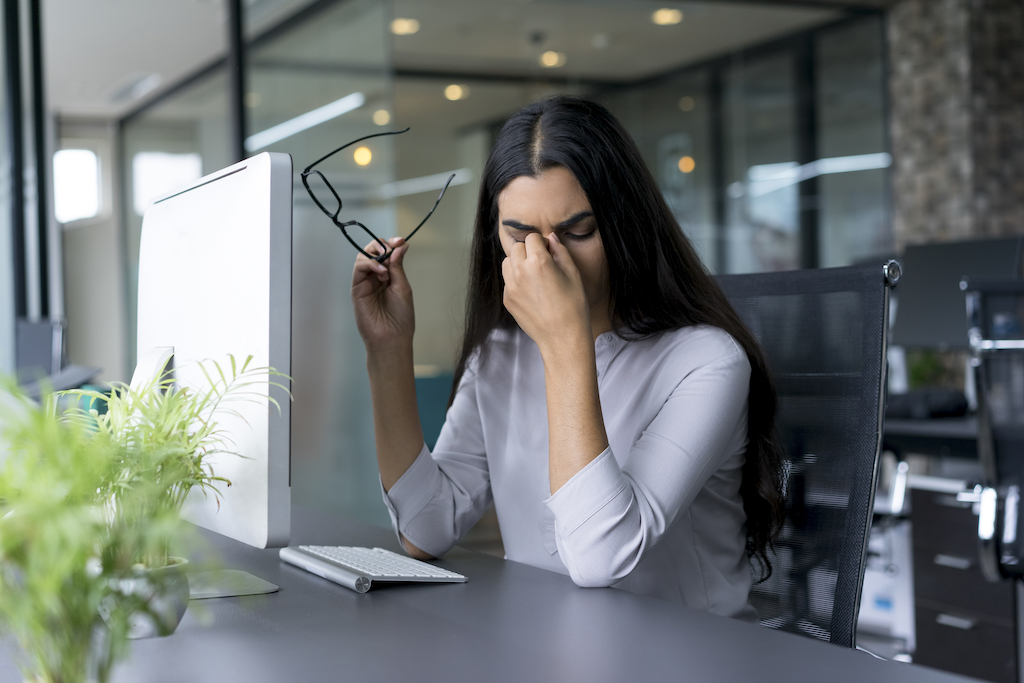What Is Fatigue & How To Fight It

September 23, 2019

Have you ever woken up feeling more sleep-deprived than when you went to bed? We all have those days when tiredness hits!
Often the feeling that comes with a bad night’s sleep will go away after a few hours, but being fatigued for a long period of time may be a symptom of other lifestyle or health issues. There are times when combatting fatigue requires making a few changes too.
Find out more about what causes fatigue, and some of the best ways to manage it – these are my top tips for how to fight fatigue.
What is fatigue?
Fatigue is the feeling of tiredness and exhaustion, and it can be a mental state as much as a physical one. Usually, fatigue is characterised as ongoing, rather than a form of tiredness that is resolved by getting a good night’s sleep.

What causes fatigue?
Fatigue can be connected to a number of other factors – a lack of sleep over a period of time is a common culprit. Other lifestyle causes of fatigue can include stress, eating poorly, exercising too much, or NOT exercising enough.
For some people, a medical condition could be the cause of fatigue. If you feel concerned about the cause of your fatigue, you should follow up with your doctor.

What are fatigue symptoms?
Apart from feeling tired, other fatigue symptoms include:
- Poor concentration
- Slower reflexes
- Impaired hand-eye coordination
- Low mood
- Body aches and pains
- Headaches
- Reduced energy levels

What are the risks of fatigue?
Scientific studies of sleep patterns show a range of risks can be associated with fatigue.
The risks closely mirror some of the symptoms of fatigue – if you are experiencing poor concentration and slower reflexes, your driving could be affected. Depending on what you do for work, these symptoms could also mean you aren’t performing tasks to the best of your ability.
Impaired hand-eye coordination during training may also create a greater risk of injury as you’re not able to maintain correct form while working out.
Additionally, aches and pains could be a sign that you’re overtraining, and need longer recovery times to prevent injuries from occurring. It’s better to aim for a consistent routine you can stick to in the long term.
Not getting enough sleep may also cause dehydration. The kidneys, which play a vital role in hydration, may be affected by a lack of sleep. This may, in turn, lead to poor hydration.
If you have concerns about the risks of fatigue affecting you, a doctor will be able to advise you about an appropriate course of action.
How to naturally manage fatigue
There are a lot of lifestyle changes and actions you can take to fight fatigue. These are some things you could try:

1. Stick to a schedule
I’m all about time-saving and productivity hacks – and I find keeping to a schedule allows for you to really see what needs to be done and when. That way you can make sure you’re giving yourself enough time to get the hours of sleep you really need too.

2. Go to bed at a set time
Routine and consistency is something I talk about a lot in relation to working out and making progress, but it’s also something that can really improve your sleep. By going to bed and waking up at set times, you can help train your body to get used to the pattern and can ultimately improve the length and quality of your sleep.

3. Rest
Allowing yourself to recover from workouts is essential to maintaining health and fitness as well as making progress with your goals, especially if you're feeling too tired to workout. Just as much as not getting enough exercise can be a cause of fatigue, it can also be a symptom of overdoing it. Rest days are SO important for your overall wellbeing.

4. Monitor your caffeine intake
I really enjoy a good Turkish coffee but drinking too much caffeine, or at the wrong time of day, can affect your ability to get to sleep, so switch to decaffeinated coffee or herbal tea after mid-afternoon.
5. Eat well
Good nutrition is one of the foundations of being healthy so make sure you’re eating the right foods to fuel you. It’s also important to eat the right meals at the right time of day. You might find eating your evening meal a bit earlier, or eating a lighter meal at dinner time is best for you, and will help you sleep.

6. Drink water
Being well hydrated can aid your night’s sleep and your general energy levels, so make sure you’re getting enough fluid each day.

7. Change your activity levels
Too much exercise can leave you exhausted, but it’s also possible you might not be doing enough activity. Following a training program designed by a qualified personal trainer, in consultation with your doctor, may help increase your energy levels. Making time for exercise could benefit you at bedtime too, as working out can also help you to get better quality sleep.

8. Make sure you’re getting enough iron
Low iron levels may be an underlying factor for some women when it comes to feelings of fatigue. Taking a look at your diet and ensure there are enough sources of iron in your diet. This is definitely one to follow up with a doctor if you have further concerns about your iron level, as they can do tests and give you a course of action if needed.

9. Tackle sources of stress
Identifying the areas of your life that could be causing additional stress, and taking action, may help fight fatigue.
Looking after yourself is so important!
It’s worth checking in with yourself, listening to your body and looking at what you’ve been doing over the previous weeks to see if there are any lifestyle issues that could be influencing your feelings of fatigue.
Have you really been eating well, exercising regularly or getting enough rest? Are there sources of stress in your life that need to be resolved? Are there any health issues you haven’t followed up on with your doctor?
Taking a look at the bigger picture could give you more information about potential reasons for feeling fatigued. It’s SO important to take care of yourself!
What are some of the ways you fight fatigue? Comment below!